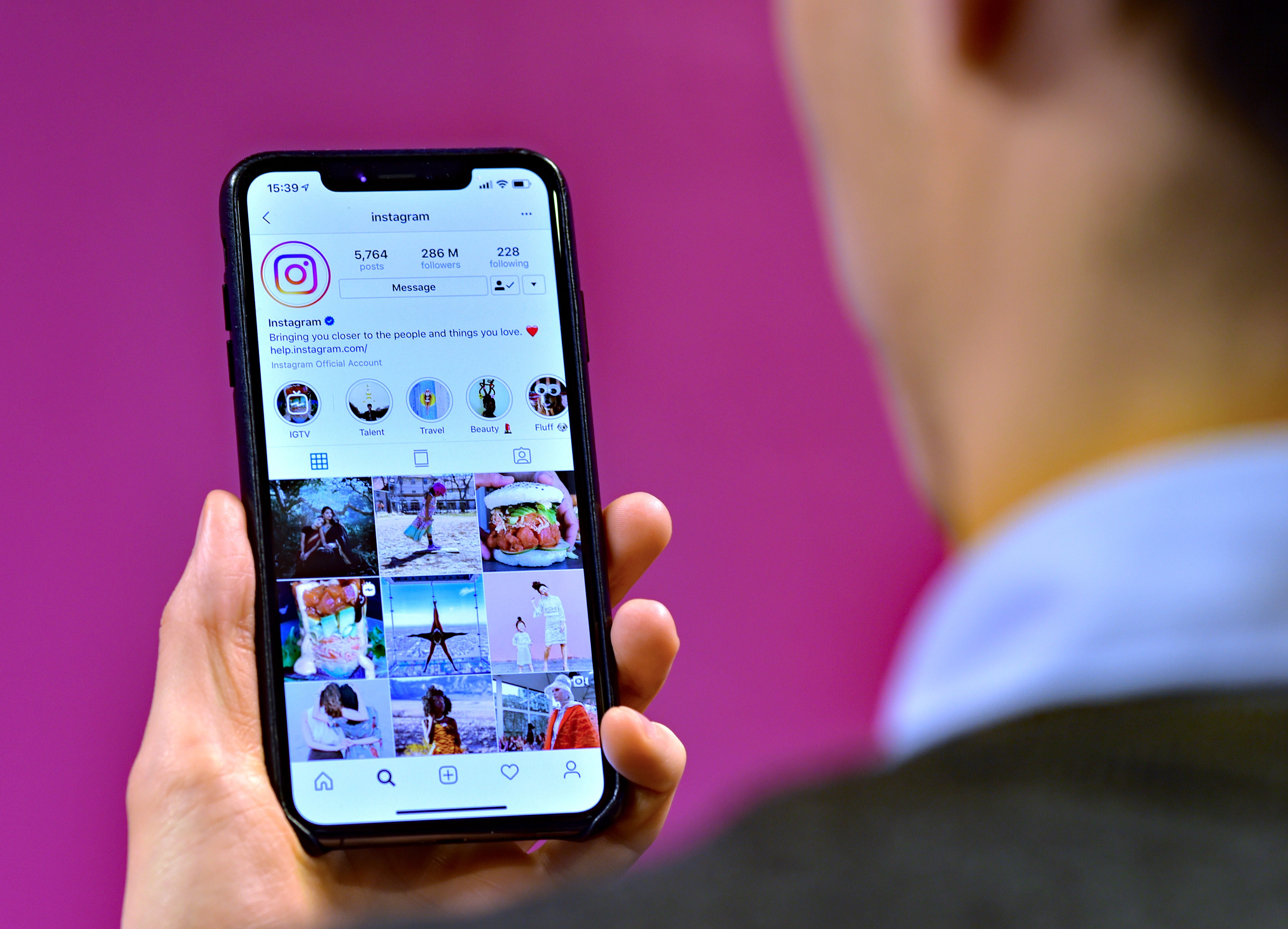On an app that’s all about communication, why can’t I talk to anyone at Instagram?
Thousands have found themselves in Instagram’s imposed state of limbo, from small retailers to creators and influencers, some of whom have paid hackers tens of thousands of dollars in order to restore their accounts


This summer, provided there are no lockdown restrictions or (knock on wood) an outbreak of a new Covid variant, I will be getting married.
The story leading up to our ceremony is a classic of the lockdown-era romance; watching Netflix films over Teleparty, Facetiming while making the same meals, struggling through a Chloe Ting workout, socially distanced walks, falling in love over late-night Whatsapps.
By the time things did return to normal-ish in the summer of 2021, I knew I wanted to spend the rest of my life with her. I proposed on Regents Canal on a warm, slightly rainy day. Reader – she said yes.
At this point in the story, we’d fast forward to the wedding scene, complete with the white dress, grand marquee and fancy canapés. Sadly, what most films and TV shows don’t tell you is how difficult it is to plan a wedding in the first place: finding a venue, rigorously analysing types of cutlery, endless conversations about chairs.
A few months go, this task became even more arduous when my Instagram account – a service that, while rarely used in my personal life, became fundamental in order to communicate with artists, illustrators, craftspeople and decorators with whom we wished to work – was unexpectedly disabled.
It turned out that at a time when so many creators have found themselves having to adapt their businesses to Instagram’s – and, by extension, Facebook’s – commercial infrastructure, getting locked out of it cut me off from a significant portion of the global creative economy.
I’m still unsure why my account was deleted. Instagram informed me as I tried to log in me that “Your account has been disabled for violating our terms”, taking me to a page that lists hundreds of reasons why an account might be deleted from the platform ranging from copyright infringement to the distribution of underage sexual imagery.
There is no way to contact anyone at Facebook for support – not even so much as an email. The best the platform offers is a request for an account review, requiring a user challenging a ban to send a picture of themselves holding a piece of paper with their details to a general email account, and wait to hear back eventually.
There is no limit to how long this review process can take. On forums I’ve scoured, users whose accounts were disabled reported the process could take between five days to well over a year. As you will have probably guessed by now, nobody has responded to any of my 28 emails asking about the progress of the review, let alone whether it could be sped up.
Currently, my best guess is that the ban was the result of sending similarly written emails to artists enquiring about pricing only to be considered a spambot by the platform’s moderation algorithms. The uncertainty, the lack of clarity and closure, feels disorientating, a punitive punishment for a misunderstanding that could easily be resolved through a quick phone call.
Yet thousands of people have found themselves in Instagram’s imposed state of limbo, from small retailers to niche creators and influencers, some of whom have paid hackers tens of thousands of dollars in order to restore their accounts (although in many of these cases these backdoor dealers turn out to be scammers).
That so much money is spent trying to recover Instagram accounts illustrates an obvious, though much less talked-about problem with platforms. Algorithms are employed to manage the majority of content moderation with the expansion of user numbers, and the human element of social media usage further dissipates.
Platforms like Instagram encourage us to incorporate the app into our everyday lives, from running small businesses and promoting our work to posting personal pictures of ourselves, our friends, and even our deepest, intimate feelings.
Yet in doing so, it establishes a dehumanizing relationship with its users, one in which it continues to extract and commodify its datawhile leaving them open to phishing scams, abusive comments and even blocking entire groups of people from documenting and broadcasting protests.
In almost all these cases, Instagram has cited problems with its automatic algorithmic moderation systems, publicly promising to fix the problem of everyday users being stuck in limbo with few feasible alternatives for their digital social life.
A combination of a complicated, ever-changing sets of terms and conditions, along with Facebook’s continued reliance on algorithmic moderation software, means whatever patches and corrections Instagram might make retrospectively, ordinary users will always be at risk of losing their profiles.
Indeed, for users in countries like India, where Facebook products are considered to be ‘the internet’, getting your account shut down is akin to being cut off from the Internet entirely. The continued dependence on automated algorithms has human consequences, as I found out a few days after my account was disabled.
To keep up to speed with all the latest opinions and comment sign up to our free weekly Voices Dispatches newsletter by clicking here
Deep into my Instagram was a picture of myself with a school friend who passed away a few years ago. It may be the only picture I have of him, so losing this would also mean losing part of my memory of him forever.
Perhaps I was foolish in believing a multi-billion dollar company in San Francisco could keep my teenage memories safe. At the same time, I suspect my situation isn’t novel, and will become more frequent as Facebook and other technology companies demand more of our information as they transition toward Web3 and the Metaverse.
In this future, it won’t just be cherished photographs that could be lost as a result of a misunderstanding, but whole swathes of people’s lives. They may find themselves in a perpetual purgatory, waiting for the word of a tech company to simply be allowed to exist.
Join our commenting forum
Join thought-provoking conversations, follow other Independent readers and see their replies
Comments
Bookmark popover
Removed from bookmarks